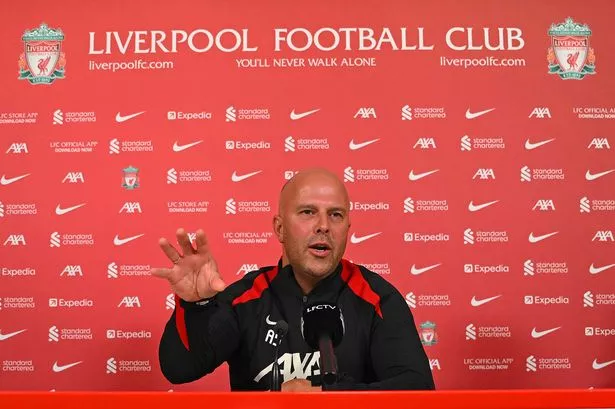Place your adverts here on InfoDig @ low rates; banner ads, sponsored links and guest articles etc. Contact us
Life is a journey full of lessons, but some of the most profound insights tend to come later than we’d like. For many men, the wisdom gained through experience brings a sense of clarity – and sometimes a tinge of regret. “If only I had known this sooner,” we might think as we reflect on missed opportunities or misplaced priorities. While we can’t turn back the clock, we can learn from those who have gone before us. In this article, we’ll explore ten pieces of life-changing advice that men often learn too late, backed by scientific evidence.
1. Prioritize Your Health Early
Your health is your most valuable asset, but many men neglect it in their younger years only to face consequences down the road. The habits you establish early on can pay dividends for decades to come.
Regular exercise starting in young adulthood is linked with sharper thinking skills and a lower risk of dementia later in life. What you eat matters too – a nutritious diet in your 20s and 30s can slash your heart disease odds as you age.
2. Invest in Relationships
Men often neglect personal relationships in the pursuit of career success. But the science is precise—solid social connections are just as crucial for health and longevity as diet and exercise.
The benefits of brotherhood can’t be overstated. Men with close social ties are 50% more likely to live longer than those with weaker connections. From fishing buddies to poker nights with the guys, make time to nurture those bonds, even when life gets hectic.
3. Develop Emotional Intelligence
Emotional intelligence (EI) may not get as much airtime as IQ, but it plays a pivotal role in personal and professional success. Men with a high EI tend to excel in their careers, showcase strong leadership skills, and experience greater life satisfaction overall.
So, what exactly is EI? In a nutshell, it’s the ability to recognize and manage one’s own emotions and understand and empathize with the feelings of others. This skill set can be strengthened over time with practice and self-awareness.
4. Learn to Manage Stress
Let’s face it – life can be stressful. But letting that stress simmer over time can be a recipe for disaster. Chronic stress puts you at higher risk for heart disease, depression, and a host of other health woes.
The good news is that there are proven ways to manage stress. Mindfulness meditation, for example, can ease anxiety and boost overall well-being. Regular exercise is another potent stress-buster.
5. Start Saving Early
Many men look back and wish they had started saving and investing earlier. It’s an understandable regret – the power of compound interest is a massive financial advantage when you’re young.
Let’s look at the numbers. If you start saving money for retirement in your 20s instead of your 30s, you could end up with hundreds of thousands more by the time you’re ready to leave the workforce. Even small amounts squirreled away early can snowball over time.
6. Never Stop Learning
In a constantly changing world, lifelong learning isn’t a luxury – it’s a necessity. Men who embrace continuous growth and education tend to have sharper minds, greater life satisfaction, and a broader perspective as they age.
Learning isn’t limited to a classroom. Read books and articles on topics that fascinate you. Pick up new skills through online courses or workshops. Engage in lively discussions with people who challenge your assumptions.
7. Find Work-Life Balance
Burning the candle at both ends for the sake of your career can come with a steep price. Working excessively long hours is linked to a higher risk of stroke and heart disease. Plus, it leaves little time and energy for the people and activities that genuinely light up your life.
Many men regret a lopsided work-life balance down the line. The antidote? Setting clear boundaries between your professional and personal life. When you’re off the clock, be fully present for your hobbies and loved ones.
8. Take Care of Your Mental Health
Mental health is often a taboo topic for men, but sweeping it under the rug can have serious consequences. Men are less likely than women to seek help for mental health struggles, which can contribute to higher rates of substance abuse and suicide.
The truth is, mental health issues can affect anyone – and there’s no shame in getting support. Many effective treatment options are available, Whether talking to a therapist, opening up to a trusted friend, or trying medication.
9. Build Resilience
Throughout life, setbacks and challenges are inevitable. How you respond to those tough times can make all the difference for your mental health and overall well-being. That’s where resilience comes in. Resilience is the ability to bounce back from adversity and adapt to change. It’s a trait that can be strengthened over time with practice and the right mindset.
Start by developing a growth-oriented perspective. View challenges as opportunities to learn and grow rather than as threats. Surround yourself with supportive people who believe in your abilities.
10. Give Back
As men mature, many find deep fulfillment in giving back to their community. Whether volunteering at a local charity, mentoring a younger person, or advocating for a cause you care about, contributing to something bigger than yourself can provide a profound sense of purpose.
Generosity is good for your health, too. Research shows that volunteering is linked to better physical and mental health outcomes, especially for older adults. It also expands your social network and keeps you engaged with the world.
Case Study: Harold’s Journey to a More Fulfilling Life
Harold, an ambitious architect, had continuously poured himself into his work. His projects were innovative and impressive, but his personal life suffered. Late nights at the office and skipped meals took a toll on his health, while neglected relationships left him feeling isolated.
One day, Harold received a wake-up call in the form of a health scare. Harold realized he needed to make some changes. He started small, incorporating daily walks and healthier meals into his routine. He also began contacting old friends and making time for family dinners.
Harold noticed a shift in his outlook as he prioritized his well-being. He approached work challenges with greater resilience and found creative solutions more quickly. Inspired, he started attending workshops to develop his skills further and explore new passions.
With a renewed sense of purpose, Harold sought opportunities to give back. He began mentoring younger architects and volunteering at a local community center. Seeing the positive impact he could make in others’ lives brought a deep sense of fulfillment. Harold realized that true success meant nurturing his career and his whole self.
Key Takeaways
- Establish good habits early on to prioritize your health, such as regular exercise, a balanced diet, and preventive check-ups. Your future self will thank you.
- Invest time and energy in building and maintaining solid relationships with friends and family. Social connections are crucial for happiness and longevity.
- Develop your emotional intelligence to excel in your personal and professional life. Work on recognizing and managing emotions in yourself and others.
- Learn effective stress management techniques like mindfulness, exercise, and hobbies to protect your mental and physical health.
- Start saving and investing as early as possible to harness the power of compound interest and secure a more comfortable future.
- Embrace lifelong learning to keep your mind sharp, expand your knowledge, and maintain a sense of curiosity and growth.
- Strive for a healthy work-life balance by setting boundaries and making time for activities and people that bring you joy outside work.
- Prioritize your mental health by seeking support when needed. Don’t let stigma hold you back from getting help.
- Cultivate resilience by viewing challenges as opportunities for growth and building a solid support network. This will help you weather life’s inevitable storms.
- Find ways to give back to your community through volunteering, mentoring, or supporting causes you care about. Generosity benefits both the giver and the receiver.
Conclusion
It’s never too early – or too late – to start integrating these life lessons. By prioritizing your health, relationships, personal growth, and community involvement, you set the stage for a rich and meaningful life. Embrace the wisdom of those before you, and pave your path forward with intention and purpose.















 English (US) ·
English (US) ·